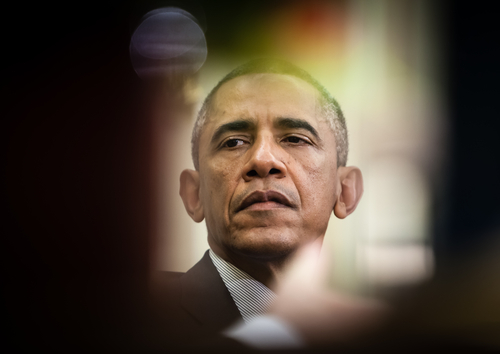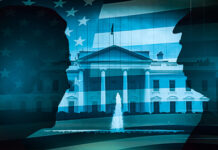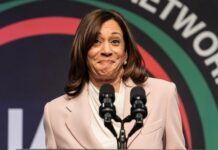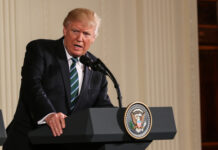
In a surprising turn of events, a group of esteemed economists, featuring a luminary from the Obama administration, has recently leveled critical assessments against the current trajectory of progressive economic policies. Their analysis, echoing long-standing conservative concerns, underscores the potential risks these policies pose to the nation's fiscal health and economic freedom.
The critique began with an examination of expansive government spending programs. For years, conservative thinkers have warned against the dangers of unchecked fiscal extravagance, arguing that it could lead to unsustainable national debt levels. These economists, leveraging their authoritative voices, have now joined the chorus of caution, suggesting that the path of rampant expenditure could jeopardize the economic future of coming generations.
Ashley Allison, former Obama administration official: O.J. Simpson “represented something for the black community … particularly because there were two white people who had been killed.”
Racism is alive and well, it seems, though mostly in progressive elites. pic.twitter.com/CB5QbcFKyy
— Hank Campbell (@HankCampbell) April 12, 2024
Taxation policies also received critical attention. The group decried the progressive push for higher taxes on the wealthy as a misguided strategy that could stifle economic growth. From a conservative standpoint, this echoes the belief in the efficacy of supply-side economics—lower taxes are seen not just as a matter of personal freedom but as a catalyst for investment, job creation, and overall economic expansion.
Regulatory overreach was another focal point of their analysis. The economists pointed to the stifling effects of excessive government regulation on business innovation and efficiency. The conservative view aligns with this sentiment, advocating for a regulatory environment that ensures safety and fairness without burdening entrepreneurs and businesses with undue constraints.
That document sure stinks of Obama and his love of BIG official SOUNDING words.
📢BREAKING NEWS: Huge Lawsuit Has Been Just Filed Aimed to Uncover Obama-Era S… via @ConservRoof https://t.co/doIyB9dtcD
— Bob 🇺🇸❤️🙏#45 (@BobFighter_45) April 6, 2024
The economists' report also touched on the importance of free markets and the potential perils of increasing government intervention in the economy. This aligns with conservative economic philosophy, which champions the idea that market-driven solutions are often more effective and efficient than those orchestrated by government.
Interpreting these warnings from a conservative perspective reinforces the argument that sound economic policy should prioritize fiscal responsibility, low taxes, minimal regulation, and market freedom. These principles are not just ideological preferences but are seen as practical necessities for fostering a prosperous and free society.
This convergence of criticism from economists across the political spectrum offers a rare moment of consensus that may hopefully lead to constructive dialogue and reevaluation of current policies. For conservatives, it represents an opportunity to advocate for economic principles that they believe are both time-tested and essential for the nation's well-being.
In light of these discussions, it's imperative for policymakers and the public to consider the long-term implications of economic decisions. The economists' warnings serve as a reminder of the need for prudent, market-friendly policies that ensure the enduring strength and resilience of the economy.
We want to hear from you! Please share your perspective by commenting below.













Excellent rhythm, please let me know when you make modifications to your website so I may learn from you. How can I register with a blog website? I was aware of this to some extent, but your broadcast provided me with a comprehensive grasp of it, so the account was really helpful.
People have been warned about the Banks and money management since the creation of this nation,
But you can’t get a fool to understand the importance of their advise.
“We have stricken the (slave) shackles from four million human beings and brought all laborers to a common level not so much by the elevation of former slaves as by practically reducing the whole working population, white and black, to a condition of serfdom. While boasting of our noble deeds, we are careful to conceal the ugly fact that by an iniquitous money system we have nationalized a system of oppression which, though more refined, is not less cruel than the old system of chattel slavery.”
Horace Greeley – (1811-1872) founder of the New York Tribune
“If the American people ever allow private banks to control the issue of their money, first by inflation and then by deflation, the banks and corporations that will grow up around [the banks], will deprive the people of their property until their children will wake up homeless on the continent their fathers conquered.”
Thomas Jefferson
The system of banking [is] a blot left in all our Constitutions, which, if not covered, will end in their destruction… I sincerely believe that banking institutions are more dangerous than standing armies; and that the principle of spending money to be paid by posterity… is but swindling futurity on a large scale.”
Thomas Jefferson
“A great industrial nation is controlled by its system of credit. Our system of credit is
concentrated. The growth of the Nation and all our activities are in the hands of a few men. We have come to be one of the worst ruled, one of the most completely controlled and dominated Governments in the world – no longer a Government of free opinion no longer a Government by conviction and vote of the majority, but a Government by the opinion and duress of small groups of dominant men.”
Woodrow Wilson
“The powers or financial capitalism had (a) far-reaching aim, nothing less than to create a world system of financial control in private hands able to dominate the political system of each country and the economy of the world as a whole. This system was to be controlled in a feudalist fashion by the central banks of the world acting in concert, by secret agreements arrived at in frequent meetings and conferences. The apex of the systems was to be the Bank for International Settlements in Basel, Switzerland, a private bank owned and controlled by the world’s central banks which were themselves private corporations. Each central bank…sought to dominate its government by its ability to control Treasury loans, to manipulate foreign exchanges, to influence the level of economic activity in the country, and to influence cooperative politicians by subsequent economic rewards in the business world.”
Prof. Carroll Quigley in his book Tragedy and Hope
“In a small Swiss city sits an international organization so obscure and secretive….Control of the institution, the Bank for International Settlements, lies with some of the world’s most powerful and least visible men: the heads of 32 central banks, officials able to shift billions of dollars and alter the course of economies at the stroke of a pen.”
Keith Bradsher of the New York Times, August 5, 1995
“Banking was conceived in iniquity and was born in sin. The Bankers own the earth. Take it away from them, but leave them the power to create deposits, and with the flick of the pen they will create enough deposits to buy it back again. However, take it away from them, and all the great fortunes like mine will disappear and they ought to disappear, for this would be a happier and better world to live in. But, if you wish to remain the slaves of Bankers and pay the cost of your own slavery, let them continue to create “deposits.”
Sir Josiah Stamp – President of the Bank of England in the 1920’s, and the second richest man in Britain.
“The Federal Reserve (Banks) are one of the most corrupt institutions the world has ever seen. There is not a man within the sound of my voice who does not know that this Nation is run by the International Bankers.”
Rep. Louis McFadden
“This is a staggering thought. We are completely dependent on the commercial Banks. Someone has to borrow every dollar we have in circulation, cash or credit. If the Banks create ample synthetic money we are prosperous; if not, we starve. We are absolutely without a permanent money system. When one gets a complete grasp of the picture, the tragic absurdity of our hopeless position is almost incredible, but there it is. It is the most important subject intelligent persons can investigate and reflect upon. It is so important that our present civilization may collapse unless it becomes widely understood and the defects remedied very soon.”
Robert H. Hemphill, Credit manager of Federal Reserve Bank, Atlanta, Georgia
“History shows that the money changers have used every form of abuse, intrigue, deceit and violent means possible to maintain control over governments by controlling the money and the issuance of it.”
President James A. Madison
“All the perplexities, confusion, and distress in America arise, not from defects in the
Constitution or Confederation, not from want of honor or virtue, so much as from (PEOPLE’S) downright ignorance of the nature of coin, credit and circulation.”
President John Adams